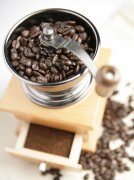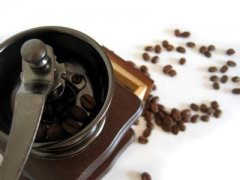Is coffee good for you?

Some people try to prove the medical legitimacy of coffee, while others do the opposite, citing coffee as a footnote to their theory. In the early 17th century, the four-body fluid theory inherited from ancient Greece still played a leading role in the medical field. this theory holds that natural matter is composed of air, water, fire and earth, with four properties: hot, dry, wet and cold. When it comes to medicine, it is believed that the human body also has four kinds of body fluids (yellow bile, black bile, blood and mucus), and the balance of all kinds of body fluids is related to people's health and character. The medical community has tried to include coffee in this liquid system, but without a good understanding of how coffee works, it is not only unscientific, but also difficult to implement. Some people say that coffee is cool, some say coffee is warm, some people think it thickens the blood according to the process of coffee (roasting), and others say it can dilute bile and make people calm. There are obvious loopholes in each point of view, accusing each other of other people's weaknesses, and in the end, no one can convince the other, of course, there is no conclusion in medicine. Gradually, the medical community reached an unwritten compromise: coffee is good for the body, and the benefits are omni-directional, it can treat all diseases caused by humoral imbalance. This compromise justifies the spread of coffee. A spiritual drink has now been proved to be healthy by the medical community, and its taste is not bad, so its popularity is inevitable. By the 18th century, this misunderstanding was still not over, and Diderot believed that coffee was especially good for slimy people, especially the obese. In the Encyclopedia, he stressed that since most thin people are not slimy, there is no need to drink coffee.
Since the 18th century, the price of coffee has dropped a lot, and more and more people can afford it. The medical profession believes that coffee can treat flatulence, strengthen the liver and benefit gallbladder. Ordinary people realize the refreshing benefits of coffee, gradually adapt to its bitter taste, give up beer at breakfast and leisure time, and imitate aristocrats to drink coffee. But at this time, people's understanding of coffee is far from perfect, and like the large number of novelties from colonies and the East that have flooded into Europe in this era, people are either over-glorified or afraid of these non-locally produced things that cannot be directly perceived in daily experience. Many doctors believe that coffee can cure almost all diseases, and they have never stopped wondering about the possible side effects of coffee. King Gustav III of Sweden (1746-1792) had always wanted to prove that coffee was poisonous. He found two prisoners who were sentenced to death, forced them to drink coffee and tea every day, and ordered the court doctor to observe the records. After drinking expensive drinks for a period of time, both prisoners were free, which made their cellmates very jealous. Many artists are coffee lovers, and this fear later became the object of their mockery. Bach's "Coffee cantata" lyrics are playful and cheerful, saying that the daughter of a citizen's family is fond of coffee, but the father tried every means to ban it, but in vain. The trio of the finale sings: "it's like a cat wants to catch a mouse, everyone needs coffee." Another lesser-known composer, Carl Gottlieberhelin, wrote "Coffee Cannon", which uses the six letters of "C-a-f-f-e-e" as the tonality of each paragraph, namely in C major, a minor, f minor and e minor. He specifically noted at the beginning of the score: "Don't drink so much coffee!"
Important Notice :
前街咖啡 FrontStreet Coffee has moved to new addredd:
FrontStreet Coffee Address: 315,Donghua East Road,GuangZhou
Tel:020 38364473
- Prev

Coffee common sense Why does drinking coffee look so pretentious?
At first, coffee was just an exotic and joking drink for royalty and aristocrats besides mellow wine and beauties, which was no different from Chinese porcelain and Persian blankets. Their sense of taste is not adapted to such bitterness, and there is no need for the functionality of the drink. Coffee, as a drink, is an empty signifier for the royal family, which really makes them
- Next

The relationship between Coffee and Chocolate
From the beginning of the 18th century, chocolate, another kind of black drink, became popular between the court and the aristocracy. In A Tale of two cities, Dickens depicts aristocrats drinking chocolate as follows: the first attendant wants to hold the chocolate jar in front of the sacred adult; the second attendant wants to grind the chocolate into powder and foam with the special gadgets he brings; the third attendant presents the napkin that adults like; the fourth
Related
- Beginners will see the "Coffee pull flower" guide!
- What is the difference between ice blog purified milk and ordinary milk coffee?
- Why is the Philippines the largest producer of crops in Liberia?
- For coffee extraction, should the fine powder be retained?
- How does extracted espresso fill pressed powder? How much strength does it take to press the powder?
- How to make jasmine cold extract coffee? Is the jasmine + latte good?
- Will this little toy really make the coffee taste better? How does Lily Drip affect coffee extraction?
- Will the action of slapping the filter cup also affect coffee extraction?
- What's the difference between powder-to-water ratio and powder-to-liquid ratio?
- What is the Ethiopian local species? What does it have to do with Heirloom native species?

